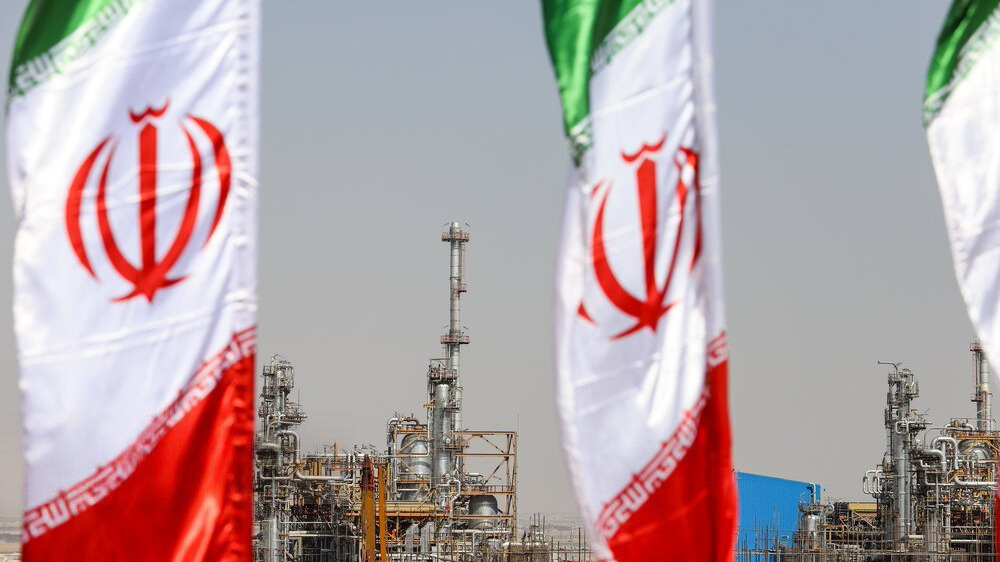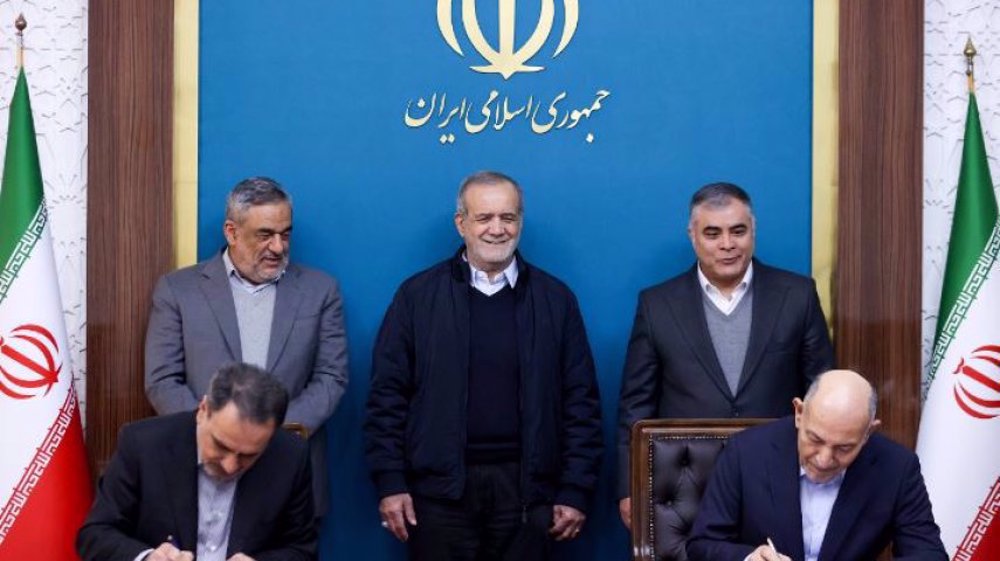Iran sees no deal on oil output freeze: Zangeneh
Minister of Petroleum Bijan Zangeneh says Iran will continue to ramp up oil production until it returns to levels before sanctions cut its exports.
As he arrived in Vienna ahead of Thursday’s meeting of OPEC ministers, Zangeneh said a return to individual producer output quotas is the only way to manage the oil market.
OPEC accepted a Saudi plan to scrap allocating fixed production quotas to member countries in 2011 and introduced an output ceiling which does not specify quotas.
Lately, Saudi Arabia has suggested a production freeze at current output levels despite the fact that there is already up to 2.5 million barrels per day of excess oil in the market.
The Saudi proposal jars with Iran's bid to regain its market share through stepped-up oil production but Riyadh has said it would commit itself to a freeze plan only if Tehran joined it.
After talk among Persian Gulf producers that discussions about a new production target could take place on Thursday, Zangeneh said an overall output ceiling “has no benefit for us and other OPEC producers."
“We need to have a country quota but I don’t believe it will happen at this meeting,” he said, adding the meeting would focus on choosing a new OPEC secretary general to replace Abdullah al-Badri.
Zangeneh said Iran’s production has risen above 3.8 million barrels a day and is quickly approaching 4 million.
He said Iran's oil exports have doubled since the last OPEC meeting in December to about 2.023 million bpd in May.
“A doubling of exports of Iranian oil has had no negative impact on the market and has been absorbed well,” Zangeneh said.
“It is encouraging that the oil market is returning to a balanced state despite some sabotage carried out in this period,” he added.
Recent market figures show the imports of Iranian crude by its Asian clients increased by more than 13 percent in April from a year ago.
They confirm official announcements that the country is regaining the share of the oil market it lost as a result of sanctions over its nuclear program.
For several years before 2012, Iran exported around 2.5 million bpd, with more than half going to Asia, mainly China, South Korea, India and Japan.
Oil prices dipped in Asia Wednesday as traders cautiously await the results of the OPEC meeting this week.
Crude prices have rebounded from their January lows of under $30, and last week briefly pushed past $50 a barrel for the first time this year.
Zangeneh said he thought $70 is an appropriate price in view of the current market situation.
He said OPEC must reassert its role in stabilizing the market and intervene when there is no balance in the market.
Democrats threaten govt. shutdown after second ICE killing in Minneapolis
MSF to disclose limited list for Gaza staff after Israel revoked its aid licenses
VIDEO | India defies Western push at UN Rights Council on Iran
Cuba's president observes drills, vows high cost for any US aggression
Iran dismisses Nazi-style propaganda on riot death toll
Israel kills more civilians in Gaza amid relentless ceasefire violations
VIDEO | Press TV's news headlines
Israeli soldier fakes kidnapping of Palestinian to extort family










 This makes it easy to access the Press TV website
This makes it easy to access the Press TV website